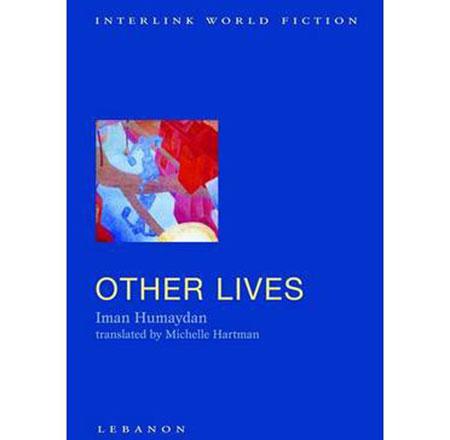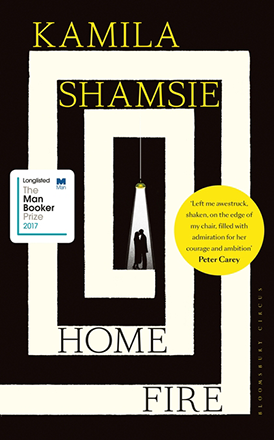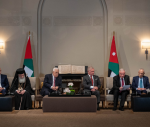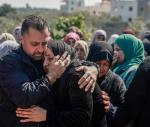You are here
Palestine: The legacy of nostalgia
By Sally Bland - Jul 29,2018 - Last updated at Jul 30,2018
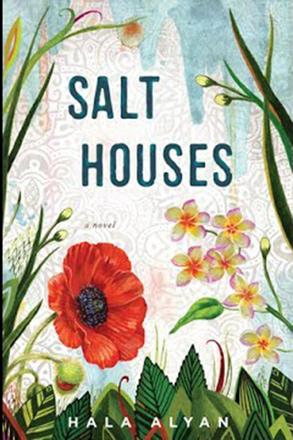
Salt Houses
Hala Alyan
New York: Mariner Books, 2018, 310 pp
In “Salt Houses”, Palestinian-American author Hala Alyan follows four generations of the Yacoub family, as they are pushed from Haifa to Nablus to Kuwait to Amman and Beirut, with interludes in Paris and Boston for the third and fourth generations.
The book is a novel but it has the feeling of a memoir. And perhaps it is to some extent, for Alyan dedicates the book to “my family, who gave me stories to tell”. Being inspired by real stories may be what makes the narrative seem so authentic. In recounting multiple displacements, it mirrors the lives of many, if not most, Palestinian families, making it a sort of collective memoir, though fictionalised.
It is not, however, a simple allegory for the Palestinian experience. What makes the story so special is how Alyan crafts each character’s individuality and their interactions. While their multiple displacements are caused by war, the book does not dwell on these events but on how they impact the family members’ emotional lives and relationships.
Alyan is a clinical psychologist specialising in the treatment of stress and trauma, and she brings this insight into her character development. Before writing this novel, she had published four volumes of poetry and her prose gives evidence of her lyrical skills.
For the first two generations, memory and longing are major elements in the characters’ emotional make-up, accentuated by the novel’s structure as it weaves back and forth in time and place. This is especially true for Salma and Hussam, who were forced to flee Jaffa during the Nakba. Hussam never recovers from their expulsion and dies a bitter man in Nablus. “Nostalgia is an affliction… Like a fever or a cancer, the longing for what had vanished wasting a person away.” (pp. 74-5)
In contrast, Salma soldiers on, creating a new life for their three children. Of the three, “Only Alia mentioned Jaffa after they arrived in Nablus, with the tactlessness of the very young… It would become the girl’s most endearing and exasperating quality, how she could become enamored of things already gone… But Salma was cheered when her daughter mentioned Jaffa… Salma missed her home with a tenacity that never quite abated. She spent the first years in Nablus dreaming of returning”. (pp. 6-7)
Still, Salma focuses on the present, upholding traditions when possible, but showing remarkable flexibility when needed. She is a survivor as is her outspoken and unconventional daughter, Alia, who continues the line of strong women and functions as the family matriarch after Salma’s passing. Alia’s memory loss in old age serves to set the importance of memory in relief. Also setting the psychological effects of displacement and loss in relief is the fact that the family is not poor; they do not have to struggle economically. Yet, though they set up comfortable homes in various places of exile, nostalgia persists.
It is as if Alia wants to defy their displacement with her daring, sometimes outlandish, behaviour; in most cases, speaking of what went before, what has been lost, is too painful: “Palestine was something raw in the family, a wound never completely scabbed over.” (p. 281)
Alia’s husband, Atef, reacts differently, becoming more introverted. He serves as the family’s most sympathetic listener, and the vessel of their memories. Before Nablus was occupied, he and Alia’s charismatic brother, Mustafa, were drawn into the circle of an imam who preached resistance to Israel, and the two were arrested in 1967 when the Israeli army rolled in. Only Atef was released, and only he has an inkling of Mustafa’s fate which haunts the family for years.
Atef struggles with the psychological aftereffects: “It’s like a shadow life… Like there’s another me, and that me is still stuck, like a skipping record”. (p. 79) Later on, as a form of therapy, Atef writes “letters” to Mustafa which his grandchildren eventually discover and read, trying to piece together the past their parents had spoken so little about. To them, Palestine is a meaningful motif, though they know little about it.
The novel’s title stems from Atef’s memories of all the houses they have lived in: “They glitter whitely in his mind, like structures made of salt, before a tidal wave comes and sweeps them away.” (p. 273) Salt is an apt metaphor for framing the family’s lives: It is savoury yet bitter, a necessity of life, a seemingly hard substance but one that crumbles under pressure.
Most family members marry and have children, and all struggle with the contradiction of wanting their children to know who they are as Palestinians yet wanting to protect them from the wars and separations that mark their lives.
Besides war, they must also navigate the pitfalls of Westernisation, political Islam, and situations common to all, such as divorce, sickness, death from natural causes, parenthood and raising teenagers, etc.
Having herself once felt she belonged nowhere and everywhere, Alyan poignantly and precisely describes the Palestinian experience of displacement in this nuanced, evocative and elegantly written novel.
Related Articles
Returning to her native country, Lebanon, after fifteen years spent in Australia and Kenya, gives Mariam final proof of her state of displacement and transience — always being on the verge of leaving (symbolised by thirteen suitcases kept on the ready in her Mombasa home).
A Sky So Close to UsShahla UjayliTranslated by Michelle HartmanUS: Interlink, 2019, 303 pp. This is a novel that was shortlisted for th


